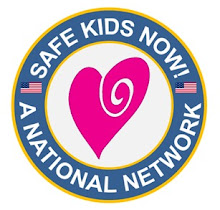A year ago, Americans were shocked by the tragic loss of 20 children and 6 teachers at Sandy Hook Elementary School. Are you surprised Congress has not passed any new gun control laws? If legislators can’t pass laws, perhaps, we need to focus in a different direction!
All school shooters and violent gang members have something in common. Adam Lanza, the Sandy Hook shooter, was an angry, lonely, troubled young man who was socially isolated with access to guns and violent video games. Just like other violent young men, he lacked strong male role models in his life and a neighborhood and community support system. He didn’t have any spiritual guidance to help develop his coping skills in order to handle his emotions. He was a candidate for mental problems and violent behavior.
If we are going to stop gun violence, let’s start a discussion on what city leaders can do to help strengthen families.
As a crime and violence prevention specialist for 38 years, I see a critical need to address fear and social isolation that drives people to buy guns. When we understand the importance of involvement and neighborhood responsibility, we can restore a sense of community. Disconnected families will discover they are not alone. New neighborhood mentors and role models will emerge as neighbors build trust. Youth need people who care and offer support to help them reach their potential.
Connected and involved neighbors can help cities save millions of dollars. Citizens would no longer feel the need to buy a gun for protection as they help youth stay out of the criminal justice system. Everyone benefits.
WHAT ELECTED, CIVIC AND RELIGIOUS LEADERS CAN DO to create positive, citywide change!
Civic and religious leaders can talk to local elected officials about creating a…
Citizens’ Task Force to focus on strengthening families.
GOAL: Strengthen families through neighborhood support and encourage healthy role models for youth! Citizen involvement reduces fear, anger, stress and isolation, as neighbors work together and build trust.
HOW? Elected and religious leaders have the ability to influence citizens to take charge of their neighborhood safety, which will help strengthen families.
WHY? In cities large and small, families experience divorce, bullying, domestic violence, child abuse, and drug and alcohol abuse. When neighbors get connected, they can help restore a stronger sense of community support.
WHO? Encourage city leaders to appoint a volunteer citizens’ or youth task force to develop a plan to help residents get connected. Depending on city population, appoint a group of 8 to 10 community “doers” to discuss local concerns and focus on a plan of action.
RESIDENTS NEED ENCOURAGEMENT AND LEADERSHIP:
Task Force members can take an active role in speaking to schools, civic and religious groups about the plan. For example: “Adopt-A-Block” can be implemented citywide. Encourage adults and youth to conduct a neighborhood survey. Get willing neighbors together and appoint leaders. Evaluate results and address concerns.
Ideas to get more neighbors and youth involved:
- Clean up graffiti and/or the neighborhood
- Plan a potluck Block Party or social gathering
- Hold an emergency Preparedness meeting
- Moms organize a baby-sitting co-op
- Plant a community garden
- Paint house numbers on curbs (Project for teens)
- Offer leadership training
Reducing fear and building trust is a long-range approach to stopping gun violence. We can no longer afford to ignore the importance of family support and neighborhood involvement if we are going to keep citizens safe and protect our children.
Stephanie L. Mann, Crime and Violence Prevention Consultant
Safe Kids Now
For more information: www.safekidsnow.com
Thursday, December 12, 2013
After SANDY HOOK: Look Beyond Gun Control!
Subscribe to:
Posts (Atom)





